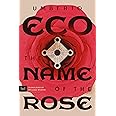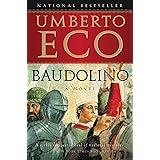
Enjoy fast, free delivery, exclusive deals, and award-winning movies & TV shows with Prime
Try Prime
and start saving today with fast, free delivery
Amazon Prime includes:
Fast, FREE Delivery is available to Prime members. To join, select "Try Amazon Prime and start saving today with Fast, FREE Delivery" below the Add to Cart button.
Amazon Prime members enjoy:- Cardmembers earn 5% Back at Amazon.com with a Prime Credit Card.
- Unlimited Free Two-Day Delivery
- Streaming of thousands of movies and TV shows with limited ads on Prime Video.
- A Kindle book to borrow for free each month - with no due dates
- Listen to over 2 million songs and hundreds of playlists
- Unlimited photo storage with anywhere access
Important: Your credit card will NOT be charged when you start your free trial or if you cancel during the trial period. If you're happy with Amazon Prime, do nothing. At the end of the free trial, your membership will automatically upgrade to a monthly membership.
Buy new:
-12% $17.70$17.70
Ships from: Amazon.com Sold by: Amazon.com
Save with Used - Good
$15.93$15.93
Ships from: Amazon Sold by: Martistore

Download the free Kindle app and start reading Kindle books instantly on your smartphone, tablet, or computer - no Kindle device required.
Read instantly on your browser with Kindle for Web.
Using your mobile phone camera - scan the code below and download the Kindle app.

OK
 Audible sample Sample
Audible sample Sample 


Foucault's Pendulum Paperback – January 1, 2001
Purchase options and add-ons
- Print length652 pages
- LanguageEnglish
- PublisherVintage
- Publication dateJanuary 1, 2001
- Dimensions5.08 x 1.3 x 7.8 inches
- ISBN-109780099287155
- ISBN-13978-0099287155
The Amazon Book Review
Book recommendations, author interviews, editors' picks, and more. Read it now.
Frequently bought together

Similar items that may deliver to you quickly
 But now I have come to believe that the whole world is an enigma, a harmless enigma that is made terrible by our own mad attempt to interpret it as though it had an underlying truth.Highlighted by 539 Kindle readers
But now I have come to believe that the whole world is an enigma, a harmless enigma that is made terrible by our own mad attempt to interpret it as though it had an underlying truth.Highlighted by 539 Kindle readers You cannot escape one infinite, I told myself, by fleeing to another; you cannot escape the revelation of the identical by taking refuge in the illusion of the multiple.Highlighted by 439 Kindle readers
You cannot escape one infinite, I told myself, by fleeing to another; you cannot escape the revelation of the identical by taking refuge in the illusion of the multiple.Highlighted by 439 Kindle readers Counterfactual conditionals are always true, because the premise is false.Highlighted by 302 Kindle readers
Counterfactual conditionals are always true, because the premise is false.Highlighted by 302 Kindle readers
Product details
- ASIN : 0099287153
- Publisher : Vintage; New Ed edition (January 1, 2001)
- Language : English
- Paperback : 652 pages
- ISBN-10 : 9780099287155
- ISBN-13 : 978-0099287155
- Item Weight : 2.31 pounds
- Dimensions : 5.08 x 1.3 x 7.8 inches
- Best Sellers Rank: #1,380,324 in Books (See Top 100 in Books)
- #268 in Italian Literature (Books)
- Customer Reviews:
About the author

Umberto Eco (born 5 January 1932) is an Italian novelist, medievalist, semiotician, philosopher, and literary critic.
He is the author of several bestselling novels, The Name of The Rose, Foucault's Pendulum, The Island of The Day Before, and Baudolino. His collections of essays include Five Moral Pieces, Kant and the Platypus, Serendipities, Travels In Hyperreality, and How To Travel With a Salmon and Other Essays.
He has also written academic texts and children's books.
Photography (c) Università Reggio Calabria
Customer reviews
Customer Reviews, including Product Star Ratings help customers to learn more about the product and decide whether it is the right product for them.
To calculate the overall star rating and percentage breakdown by star, we don’t use a simple average. Instead, our system considers things like how recent a review is and if the reviewer bought the item on Amazon. It also analyzed reviews to verify trustworthiness.
Learn more how customers reviews work on Amazon-
Top reviews
Top reviews from the United States
There was a problem filtering reviews right now. Please try again later.
"Foucault's Pendulum" is a book rich in history and deep in mystery. Even when you reach the end, you may not be entirely sure what just happened. And of course, considering the subject matter, that is entirely the point.
The story centers around one Casaubon, a student writing a paper about the Knights Templar. By chance, he meets Jacopo Belbo, a book editor working for a small publisher in Milan. They strike up a fast friendship, and Casaubon shortly begins working for the same publisher, helping them to gather facts and imagery for a new series of books they are publishing.
Casaubon, Belbo, and another editor named Diotallevi take a morbid interest in the subject matter of the many books that are brought to them. The prospective authors, who they call "the Diabolicals," present them with far-fetched ideas about global historical conspiracies and a centuries-old plot to somehow rule the world from the shadows. While each story is different, the three men can see common threads running through all of them, and on their own time they explore the idea further themselves, just for the fun of it.
Using an early model of a word processor (celverly named Abulafia, after the Hebrew Kabbalah scholar), they begin borrowing random concepts from the work of the Diabolicals and stringing them together. They include other sources as well, just to mix it up a bit. What they discover is what they call the Plan, and it could be the most important conspiracy theory in the history of the modern world, involving the Rosicrucians, the Jewish Kabbalah, Masonic rituals, Napoleon, the Nazis, and of course at the center of it all, the Knights Templar, spanning over 600 years of European history... or, it could just be a huge coincidence.
What makes "Foucault's Pendulum" such a great novel is not just how it strings the different pieces of the puzzle together (which it does masterfully), nor simply how it makes it whole idea so compelling (which it also does well), but how, simulataneously, it makes you question everything you're reading. Right up until the end (and even beyond), Eco keeps you guessing as to what is "real" and what is not. Where other authors, covering similar subjects, make the conclusions predictable or melodramatic, Eco manages to find a place where the reader is never really sure if what they're reading about is fact, fiction, or something in between. The conclusion is subtle, and leaves nagging doubts in the reader's mind.
The history presented in the book is top-notch, and it's never presented in a way that is insulting or "dumbed down" for the reader. Many books like this tend to include long, painfully obvious passages of exposition, but with Eco one never feels like the information is being presented by sacrificing the story. He manages exposition quite well, and everything that is presented matches the needed context of story and the characters.
The characters themselves have depth, and their dialogue never fails to make them real for the reader. I particularly enjoyed one part, early on, when the three new friends discuss a School of Comparative Irrelevance, a course of studies for useless or impossible subjects, such as "Urban Planning for Gypsies," "Morse Syntax," and "The Phonetics of the Silent Film." This passage served many purposes. On the surface level, it was extremely amusing. It also told the reader a great deal about each of the main characters in an efficient, transparent way. Finally, it serves as foreshadowing of the far broader and deeper invention these characters would soon be embarking upon. To accomplish so much in just a few pages of (primarily) dialogue is the mark of a gifted author.
Through the course of the book Casaubon has many different experiences, both mystical and mundane. Abulafia becomes more than a simple word processor, it becomes a source of truth and another veil of mystery to be pulled aside. Belbo tries to reconcile his sardonic nature with the mystery they seem to be uncovering, trying to maintain a scholarly distance while becoming more and more entranced with the story beneath the stories they hear. And Diotallevi ties everything they learn in with his own beliefs, and what truth means to him.
In the end, "Foucault's Pendulum" is a story about faith, and both the wonderful and terrible things a powerful belief can accomplish. It is also about how different people can take the same facts and each will interpret them in their own way, often wildly different from one another. Eco conveys his ideas via a compelling, original story, and in so doing makes we, the readers, think about what he has to say. It is not the facts themselves that are important, but only the connections we make between them. Perhaps, in the end, it is the interpretations, not the facts themselves, which shape beliefs... and therefore shape the events of history.
"But I have come to believe that the whole world is an enigma, a harmless enigma that is made terrible by our own mad attempt to interpret it as though it had an underlying truth."
I usually lose patience quickly when an author has a proclivity to use two, three - even four analogies where one is sufficient. Not so with this book. The analogies are so clever - and cleverly delivered - that I barely noticed I was being pestered by one of my pet peeves. Even after realizing it, I still was not bothered all that much. Strange, that.
Eco is a very wordy writer who, at the same time manages to drive the plot forward while painting immense pictures with words. The translation from Italian to English must have been a monumental task as the prose is dense and the sheer amount of cryptic references is staggering. While I'm sure some parts must have suffered due to translation, I found the text eminently readable. Anyway, on to the story...
Imagine that you work at a publishing house in Milan as a researcher. Now, imagine that, previous to being hired into this position, you wrote your doctoral thesis on the Knights Templar, thereby making you somewhat of an expert on the subject. Imagine further that your little publishing house is constantly beset by crackpot wanna-be authors who are looking to publish their personal crack-pot theories about the Knights Templar, the Rosicrucians, the Jesuits, the Jews, the Illuminati, the Catholics, the Nazis, the Masons, the Muslims, and... oh yes! The Masters of the World, who live underground, (naturally!)
So one night, after a long day at the office researching compounds for books on metallurgy, you are sitting around with a couple of your co-workers at the local watering hole discussing these crack-pot authors, (whom you have dubbed 'Diabolicals' - smirk!), when you hit upon an idea; you and your friends will write 'The Plan'! You will create a cohesive, all- encompassing plot that ties together all known conspiracy theories into a single unified plot! This plot will explain, once and for all, what all these mysterious secret groups have been up to all these centuries. To help with this task you enlist the aid of a strange, urbane old fellow named Agliè who is extremely knowledgeable about the occult and who likes to imply that he is the Comte de Saint-Germain, living in perpetuity and assuming new identities as the previous ones, (ahem), outlive their usefulness. But I digress...
As you and your friends obsessively enter historical details of 'The Plan' into your computer, (which is compiling all the data and turning it into 'The Plan' by finding conflicts in your data), you realize that the original Templar plan, (you know, the one that you are creating), went awry due to some mismanaged numerology. This led to one splinter group of Templars missing their meeting with another splinter group of Templars, which led to various and sundry shadowy organizations meandering around in the dark trying to figure out how to get back on track. When they catch wind of 'The Plan', these shadowy groups begin to pursue you and your friends in order to wring the final key to mastery of the world from you! Verily, your hoax is become like The Great Worm Ouroboros, eating it's own tail.
Oh, and everything of course hinges on the pendulum.
I liked this book despite the wordy 640-page length. I liked it despite Eco's insistence on lengthy descriptions. I liked it despite - and because of - the 'kitchen sink' approach that included just about every secret organization and conspiracy theory ever dreamed up. I loved this book for the humor and education it bestows. With that said, Focault's Pendulum is not for everyone. Many people will likely find it dry and tedious. I found it funny and entertaining in many parts. Downbeat and sad in others. One thing most readers will probably agree on - love it or hate it, Eco writes some extremely well-researched material and the depth of his historical knowledge is incredible.
If you're not sure, give it a try. Don't give up too soon but, if you're not having a good time by around page 200 or so, this book might not be for you.
Top reviews from other countries
Das Buch ist brillant. Es ist eine Parodie auf das Genre von verschwörungsthriller a la Dan Brown lange bevor das ein Genre war. Es ist sowohl einen Thriller als eine Parodie da drauf.
Genial.
Die Hauptpersonen denken sich einen Komplott aus um Auflage zu machen in ihr Verlag, glauben letztendlich selber dran und werden sogar Opfer dieses Komplot.
Ich halte es für Eco sein bestes Buch, zusammen mit Die geheimnisvolle Flamme der Königin Loana
Three guys - erudite Casaubon, neurotic Belbo and mystic Diotallevi - at a dodgy publishing business concoct a fantasy conspiracy around the Templars which ultimately goes bad and comes back to bite them where it hurts. The fantasy is finely constructed, and draws upon texts ancient and modern, some of them in "foreign" so those who don't understand foreign feel there's a bit more depth to the plot.
All sorts of stuff gets thrown into the ring, including cabala, Knights of the Round Table, the masons, alchemists and Argonauts, and what party would be complete without the Rosicrucians?
People get very bamboozled by numbers, I told him, so numbers are very important, especially those divisible by three, so we get three publishing men, paralleling the holy trinity, the Roman triumvirate, Lenin, Stalin and Trotsky, and for that matter the Three Stooges, Mary, Mungo and Midge, and Andy Pandy, Loobyloo and Teddy. Making the three up to four is the sinister head of the publishing house, Garamond (a stroke of genius naming him after a typeface); hence the jest midway through about the Gospels themselves being a joke grown out of control becomes a metaphor for the whole, as Garamond brainstorms a moneymaking ruse involving the duping of gullible hermeticists.
The Druids, naturally, are at the root of everything. Maybe. Or maybe it's the Grail. Then again it could be the suave Agliè, channelling some superannuated or possibly immortal Comte. But then again it could be the Zionists, although there's the possibility that "their" Protocols were misattributed, with "Ismail" being transposed with "Israel". It's history as spelling error. Cock up, not conspiracy. Where's the spellchecker when you need to avert the apocalypse?
Umberto has used all sorts of devices to get the story over, including files found on a computer, but mostly he uses the kinds of implausible, contrived conversations found in 1920s satirical novels-of-ideas such as those by Aldous Huxley. And funny? It's so funny that the humour appears to have gone right over some people's heads.
Perhaps the funniest moment is when Casaubon's wife Lia points out that the document that triggered the whole fantasy is nothing more sinister than a faded medieval shopping list, and proceeds to prove it in a manner matching any of Casaubon's own "proofs".
But the best episode comes in chapter 73, with Belbo's derivative noodlings on his computer having a dream-like quality similar to the Hades section of Ulysses, whose author is joined in a kind of Eng Lit medley which references Finnegan's Wake (Joyce's everyman, Here Comes Everybody), The Waste Land (Madame Sosostris) and the Shakespeare authorship non-controversy, attributing the bard's work to Bacon ("Bacon was a pig," he quips).
I'm sure some of the other chapters are as allusion-heavy as this one - Umberto always had his nose stuck in some book or another, some of them wholly imaginary judging by some of the epigrams heading each chapter - but this chapter plays nicely to my particular speciality, as he probably knows.
At the end, I told Umberto, there should be a convoluted denouement, featuring lots of faux-foreign incantations, blokes in dodgy cloaks (he himself wanted a Star Wars angle) and a girl on roofies. Think Apocalypse Now! but without decapitated farm animals...
Boy, did he go OTT on that one! I mean, I've read some well-past-credible conspiracy theories before - Kennedy, Area 61, Opus Dei (hmm, on second thoughts that's one of Dan's more credible ones) - but the contrivances he injected at the end here blow all my suggestions away.
So all I can say is, "Well done, Umberto old mate. You exceeded all my expectations."














